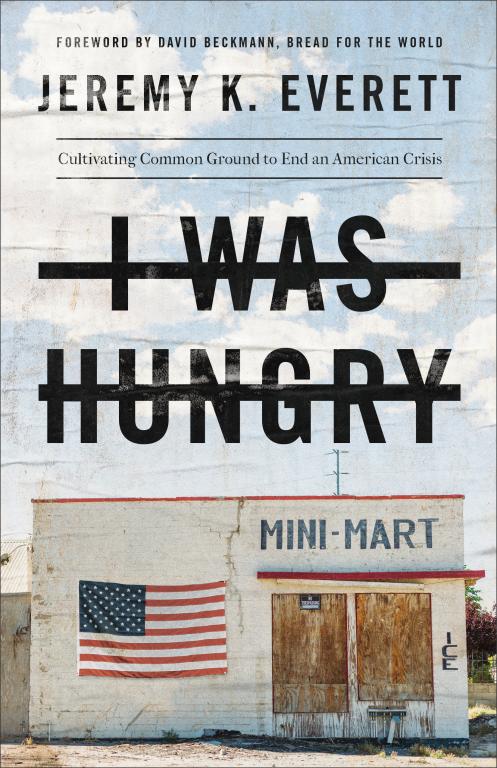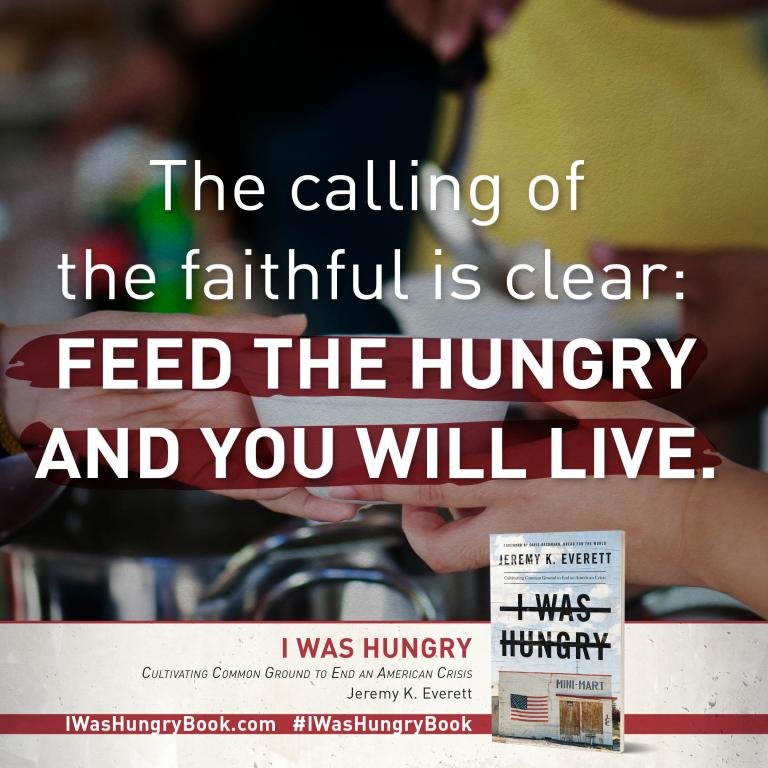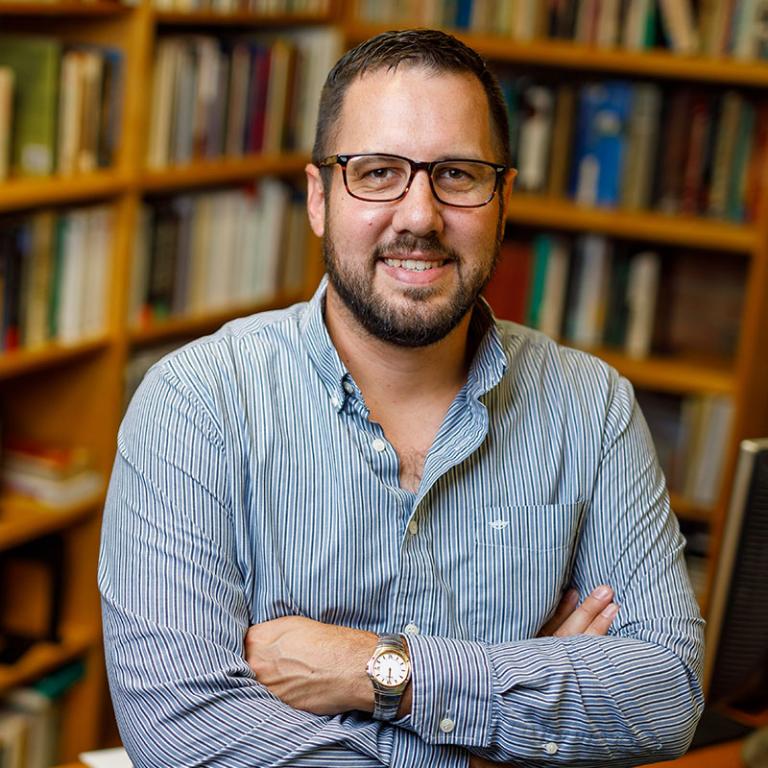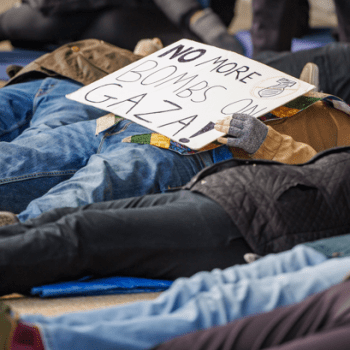While studying at Baylor University, I had the pleasure of meeting and befriending fellow Baylor Bear and Wacoan, Jeremy Everett. Jeremy is the founder and director of the Texas Hunger Initiative, a project devoted to ending hunger through policy, education, research, community organizing, and community development. He’s a National Commission on Hunger congressional appointee who has testified before congress on how to provide evidence-based solutions for the Supplemental Nutrition Assistance Program. He has worked for international community organizations as a teacher, religious leader, community organizer, fundraiser, and organic farmer. And, most recently, he is author of the brand new book I Was Hungry: Cultivating Common Ground to End an American Crisis (Brazos, 2019). While in Waco, I sat down with Jeremy at his THI office for an interview about his work and the genesis of his book. Below is part 3 of 3 of our interview (edited for length and clarity). (See also part 1 and part 2 of our interview.)

DC: As you’ve done this work of gathering diverse people to address hunger, what are some aspects of hunger in America you’ve discovered that might be surprising to the average reader?
JE: First, less than five percent of the needed food for families experiencing food insecurity comes from charitable sources. About half is provided from their own means, their personal income. The next largest percentage is from government nutrition programs like the school lunch program and the Supplemental Nutrition Assistance Program.
Second, more than half of the children in U.S. public schools are on the free and reduced lunch program, which means that more than half of children in public schools are living in impoverished households.
Third, the majority of people experiencing hunger in the U.S. who are of working age are employed. They are simply underemployed. They make low wages and are unable to piece together enough hours to provide adequately for themselves or their families.
DC: What is the single most important thing that we could do as a nation to move forward on this issue? What is keeping us from doing it?
JE: I wish there was one single thing we could do—a silver bullet of sorts. However, it is more complicated than that. If Christians are serious about feeding the hungry, we are going to have to embrace the complexity of the problem and causes of hunger. We need to encourage stronger wages for low income families, increase the availability of health care for the poor, strengthen public education (sixty-two percent of the children in Texas public schools are on the free and reduced lunch program), stop predatory lending, work collaboratively in local communities, and strengthen public and private anti-hunger (or nutrition) programs. If we do these things, it will be a step to ending domestic hunger.
But hunger is simply a result of the reality of poverty. Poverty is complex in its nature, and we have made the problem more difficult to deal with by sending so many of our well-paying manufacturing jobs to other countries. I am not suggesting that free trade is a bad thing. I think it is indicative of the new global economy that is our new reality. But instead of it being driven by concerns for social justice, it largely has been driven by market demands, which has resulted in horrendous working conditions abroad and fewer well-paying jobs in the U.S. This has led to a lack of opportunity for our poorest households in the U.S., which naturally exacerbates food insecurity. Eduardo Saenz, the Berkley economist, recently reported that there is less social mobility in the U.S. today since the year prior to the Great Depression. That means that the number one indicator of dying poor in the U.S. is being born into a poor household. So the American myth of pulling ourselves up by our bootstraps has become simply that: a myth.
DC: Do you think hunger is an issue that candidates should be talking about more often? Should presidential hopefuls make fighting hunger a plank of their platform?
JE: Absolutely, for a number of reasons. For one, working together as communities to address the issue of hunger can help us move past the inherent racism that we’re being confronted with once again as a nation. It can teach us how to work in a systemic fashion to take on issues that we as a nation haven’t yet figured out how to address. Right now, for example, there are 1,300 organizations across the state of Texas who have an inherent sense of mission and purpose for the wellbeing of low-income Texans, administering state- or federal-run food programs. We’ve been able to reduce the amount of government offices in the state, which saves the state money.
Americans always want to do things more efficiently, so getting public and private partners to work together seamlessly is a no-brainer. And it doesn’t cost a lot more money. It reduces duplication, and it also helps us identify where those gaps are so we can work together to address those gaps. In other words, fighting hunger is an issue that brings together traditionally liberal and conservative values. If the politicians who are currently running for office are really concerned about uniting America again—which, judging by their recent rhetoric, I’m not sure that they are—then this is a good first step for us as a nation to begin to rebuild trust on the local, state, and certainly federal level.
DC: If fighting hunger is a bipartisan cause, it sounds as though hunger isn’t an issue that I can just vote for the right candidate to solve. What else can be done?
JE: Making sure that this continues to be a bipartisan issue is going to be important. It does matter what you do at the polls. You can hear the rhetoric on the campaign trail—whether it’s how we welcome strangers, how we address the situation of undocumented immigration, or how we address the issue of domestic poverty. Those are going to be important things to keep in mind when we do go to the polls.
Having said that, there’s a lot that faith communities can do. Most of our almost sixty coalitions in the state of Texas were started by congregations, by people of faith who said that justice is important in our community and we’re going to use our influence and coalesce the community around this particular issue and knock it out of the park. A couple of women in a congregation in San Angelo, Texas, organized their community to address the issue of summer meals. They recognized that they had 8,000 kids who were eligible for summer meals when they kicked off their work, but they’d only served 1,000 meals over the entire summer to those children. The following summer we partnered with them, and they served over 20,000 meals to kids. Now they’re regularly serving 30,000–35,000 meals a summer. It’s projects like this that have helped us increase access to summer meals by over 6.5 million meals to kids across the state.
So faith leaders in particular can play a crucial role because their churches are established institutions within their community and they typically have the trust of elected leaders, businesses, and so forth. Their work in the community is vital to ending hunger and poverty.












